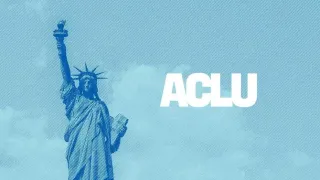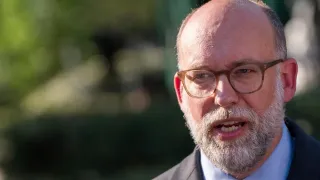January 15, 2021
In Parts of New York, Calling Someone Gay No Longer Cause for Defamation
READ TIME: 2 MIN.
Is calling someone gay cause for defamation? A New York state appeals court recently ruled that it isn't, breaking with decades-long legal rulings, reports NBC News.
Defamation is defined as a false statement that damages someone's reputation. NBC News writes: "To win a defamation suit in most cases, plaintiffs must be able to show that the statement against them is false and that it caused them to suffer damages or harm, such as losing their job. Defamation per se is a false accusation that is so damaging that plaintiffs don't have to prove that they suffered damages."
Until calling someone gay was lumped in with such accusations as accusing someone of a heinous crime or having a loathsome disease. "It meant that it was so shameful and such a disgrace that it was just assumed that obviously your reputation has been injured and you don't have to prove that element" of damages, Eric Lesh, executive director of the LGBT Bar Association of New York, told NBC News.
But in late December, the Supreme Court of the State of New York's Second Department – one court below the New York Court of Appeals, the state's highest court – overturned that decades-old precedent when it ruled that a false claim of homosexuality is no longer defamation per se, NBC News writes. A plaintiff can still sue for defamation, but they will need to prove that they were damaged by the accusation.
What prompted the ruling was a case involving a Brooklyn pastor who claimed at a church meeting attended by 300 that a church elder "was homosexual" and had "disrespected the church by viewing gay pornography on the church's computer," according to the court opinion. "The allegation led to Laguerre being relieved of his responsibilities and thrown out as a member of the church," writes NBC News.
In their decision the Second Department ruled that the "profound and notable transformation of cultural attitudes and governmental protective laws" for LGBTQ people influenced its decision. "The court cited a 2003 U.S. Supreme Court decision, Lawrence v. Texas, which found that laws criminalizing homosexual conduct were unconstitutional, and the court's 2015 decision in Obergefell v. Hodges establishing the right to same-sex marriage throughout the country," adds NBC News.
Lesh called the ruling a "no brainer," but said it is an important way to evaluate how far we've come on LGBTQ equality. "It took a long time for New York law to catch up to where we were public-policy wise," he told NBC News. "Yes, this is kind of an obvious decision, but the law moves slowly, and society usually pushes it forward." He noted, though, the decision doesn't cover the entire state, only the New York City boroughs of Queens, Brooklyn, Long Island and parts of Staten Island and the Hudson Valley.
Because many states have laws criminalizing homosexual behavior, they consider false accusations of homosexuality to be defamation. "However, after the Lawrence v. Texas ruling, which struck down the country's remaining sodomy laws, this started to change. Several courts have ruled similarly to New York's Second Department since that landmark 2003 ruling," reports NBC News.





